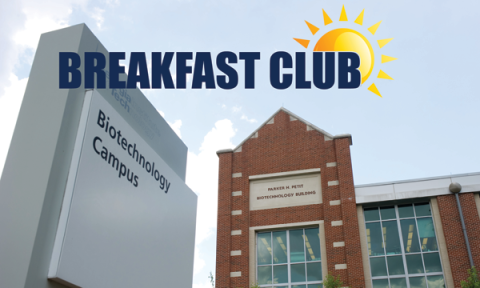event
Breakfast Club Seminar
Primary tabs
"Modulation of Peripheral Nerve Conduction and its Application to Metabolic Diseases"
Robert Butera, PhD
Professor
School of Electrical Engineering
Georgia Tech
The research in my lab ranges from neuroengineering to computational neuroscience. We utilize techniques including intracellular electrophysiology, extracellular electrophysiology, computational modeling, and real-time computing applied to conduct many of these experiments. Specific active research areas include:
- Neuromodulation of peripheral nerve activity. We study how kHz electrical AC stimuli block conduction in peripheral nerve, and how in certain circumstances this electrical block can be selective (i.e. only block specific fibers)
- Synchronization properties of neurons. We investigate how the biophysical properties of individual neurons relate to the ability of neurons to synchronize the timing of the firing of their action potentials to other neurons. The synchronization of neuron action potential firing underlies a range of neurological processes from information representation in sensory systems to motor pattern generation underlying repetitive processes such as breathing and walking.
- Real-time computing methods for electrophysiology experiments. Our lab develops open source software that allow real-time computer simulations to interact with ongoing experiments. In general, the system is designed to solve large sets of differential equations in real-time, which maintaining time-locking with external inputs from experiments and generating outputs back to those same experiments. This closed-loop paradigm is called the “dynamic clamp” in neuroscience, but this approach can be applied to many other types of experiments as well.
Other interests include nonlinear dynamical systems and oscillatory electronic circuits inspired by some of our neurobiological research. For much of my career we have also been heavily involve in the study of the neural basis of respiration. We also have a large undergraduate group called Brain Beats that is involved in studying how humans cognitive generate and respond to periodic rhythms (such as music).
Groups
Status
- Workflow status: Published
- Created by: Colly Mitchell
- Created: 11/18/2014
- Modified By: Fletcher Moore
- Modified: 04/13/2017
Categories
Keywords
User Data
Target Audience

